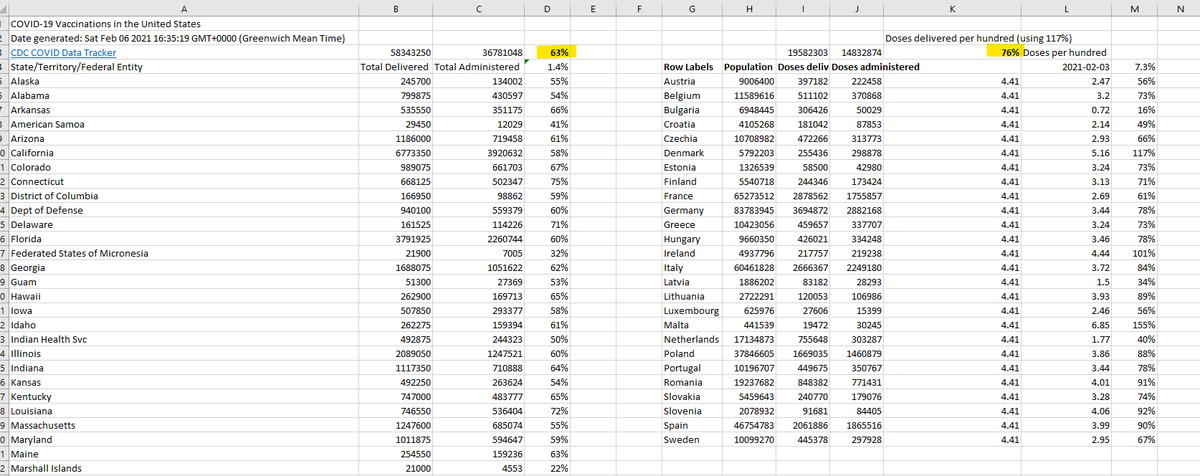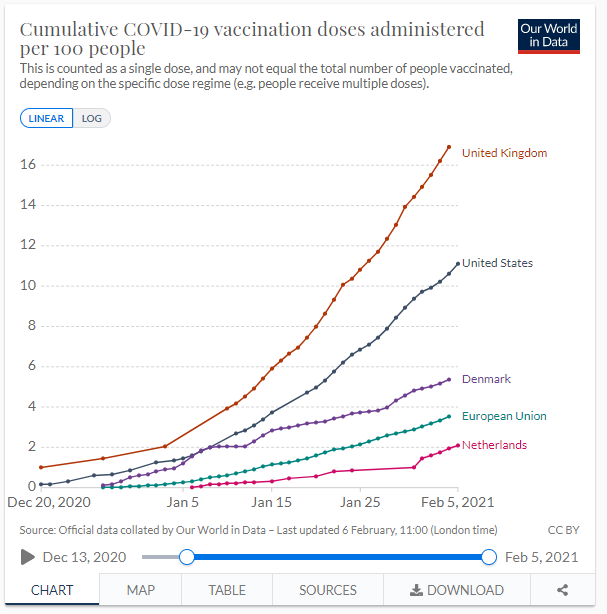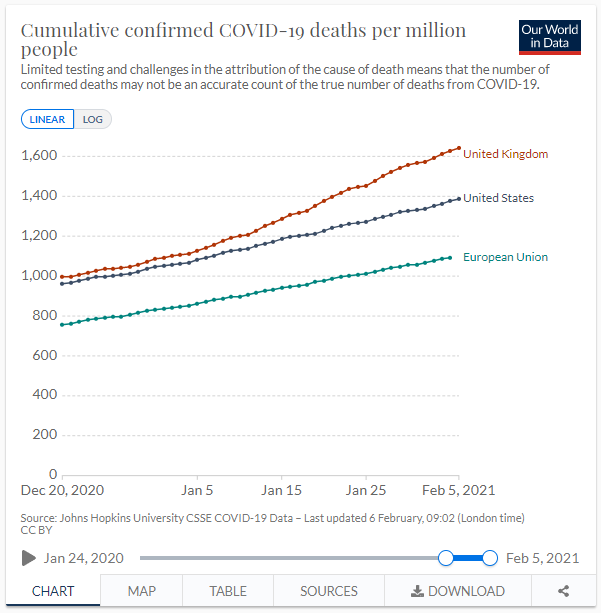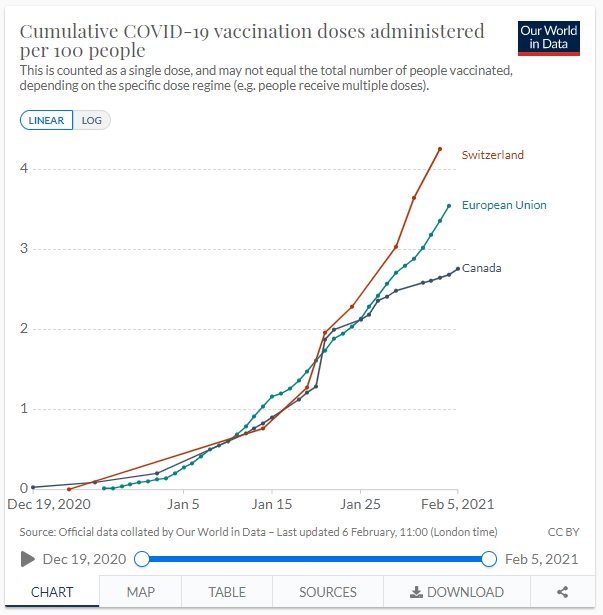Fantastic thread by Jacob which argues for shifting vaccine emphasis in the EU away from recent bickering aimed at increasing supply (and unlikely to boost supply by much) towards "spreading best practice at getting received doses into arms". Here's why I'm not convinced,... https://twitter.com/jfkirkegaard/status/1358087571084087303
My first question with many statistics is, "how good is good?" and the EU's vaccination performance is best compared with the USA on this. They're using the same vaccines and they're similarly prosperous. Comparing to the UK would be good too, but I couldn't find the data.
So I got data for all of the US states that are vaccinating people, and the same data for all of the EU countries (excluding Malta for the same reason Jacob did). Then I plot how well they're all doing at getting centrally supplied vaccines into arms. The EU is doing better.
Specifically, the EU has got 76% of doses into arms compared to the 63% that the US is managing. As I say, I'd love to add Canada and the UK to this comparison but I couldn't quickly find the data). So, yes, the EU has more variation, but it's all on the upside.
The real problem for the EU is this,... poor supply. It is a clear failure by the EU's central procurement policy and it will cost lives. Almost certainly nowhere near enough lives to make EU death rates as high as the US and the UK, but still they're lives. They count.
Why did the EU do badly? It took the same approach as other federations like Canada and Switzerland. It took a better approach than countries like New Zealand, Australia, Japan, and South Korea, but still an approach that has proven to be worse than the UK and the USA.
The US and the UK treated vaccine development and supply as a state problem, similar to a war. Huge industrial strategy, direct intervention in the market by the state, lots of big spending and wastage. The right strategy. The EU, not set up to fight wars, trusted markets. Fail.
Fortunately, the EU's market approach, developing a broad market place, agreeing to buy products, signing contracts, while worse than the UK and US approach, is not awful. The market means that the EU has both the innovative companies and factories. It will have vaccines soon.
But this crisis was a time for the big state to lead, not for markets to lead. In health matters, where the EU's states took charge, a more war-like mentality prevailed. France was ruthless on PPE for example, and it did lead to internal inequality within Europe.
This will frame discussion on industrial strategy after Covid. The UK, traditionally a pro-market and anti-state nation, has just had its biggest -- some would argue only -- Covid win through central planning. We will ask "why not do the same on 5G and EVs?" this year.
Meanwhile Macron's group within the EU will point at the failure of the EU's market-led approach on vaccine procurement and say "markets are great, but not for everything, we need more EU powers, the EU needs to look more French, more like what worked in the UK/US on vaccines".
Deciding what parts of our economy are like vaccines and what parts of our economy are like smartphones has always been a big discussion. It will be all the more interesting as we recover from Covid, and prepare for the next crisis.
ps. a decent chunk of the EU's failure on vaccine procurement has just been democratic. It was much easier for the UK to go big on vaccines with overwhelming public support for vaccination. French and German anti-vax sentiment constrained the EU and governments. That's democracy.

 Read on Twitter
Read on Twitter






